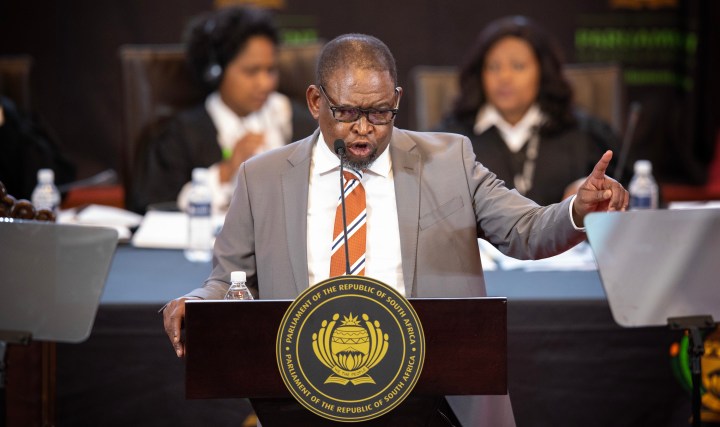MTBPS
Mini budget – Finance minister sticks to his guns on public wages, while Cosatu goes back to the drawing board

Wage negotiations in the public sector began in May when trade unions representing public servants initially demanded a 10% increase for 2022, later reduced to 6.5%.
A key point that came to the fore in this year’s mini-budget was the contentious issue of public wages. Finance Minister, Enoch Godongwana flagged this as a short to medium risk, saying that higher-than-budgeted public service wage costs would strain fiscal resources.
“Additional fiscal measures or reductions in headcounts would be required to contain overall compensation spending,” he says.
The spending estimates tabled today include the offer that the government made to unions at the end of August this year, following a facilitation process. The offer includes:
- The continuation of a non-pensionable cash allowance for the current financial year. This translates into an average of R1,000 per employee per month until March 2023.
- A pensionable salary increase of 3% for public servants.
- This offer will be implemented through the payroll system, and back-dated to April 2022.
According to acting Public Service and Administration Minister Thulas Nxesi, the government’s offer amounts to a 7.5% increase when the 1.5% pay progression and cash gratuity were taken into account.
“The offer on the table is in the best interest of the fiscus and public service workers. Implementing it does not undermine the collective bargaining process. We believe that the facilitation process has helped all parties get to this point,” Godongwana says.
Izak Odendaal, a strategist at Old Mutual Wealth notes that teacher unions have settled for a 3% increase (plus a cash gratuity and pay progression) and this is likely to be a benchmark for the remaining negotiations. “This implies more growth in the public sector wage bill than the February Budget pencilled in, but still means that the expansion of the wage bill is slowing compared to the pre-2020 trend. The ship is therefore slowly turning around,” he says. Cosatu, however, has rejected the offer and has gone back to its initial demand of 10% across the board on the cost-of-living adjustment.
Visit Daily Maverick’s home page for more news, analysis and investigations
Simon Hlungwani of Cosatu, says public service continues to suffer due to non-filling of funded vacant posts amid growing demands for quality service.
“Our demand of 10% across the board on the cost-of-living adjustment, which takes into consideration the volatile economic conditions and the rising inflation which is above the expected nominal bands of 3% and 6%, remains justified. We have since declared a dispute and the conciliation is scheduled for 31 October and 01 November 2022,” he says.
Expenditure on public wages for the 2022/2023 financial year has been revised upwards to R693-billion from a previous figure of R665.7-billion. Wage negotiations in the public sector began in May when trade unions representing public servants initially demanded a 10% increase for 2022, later reduced to 6.5%.
Earlier this week, acting Public Service and Administration Minister Nxesi said the government’s 7.5% increase offer remained on the table.
“No employer wants a strike. Employers will do anything possible to avert a strike and we have done all we can to do so,” Godongwana says, cheekily adding that public sector wage negotations is his “favourite topic”.
Importantly, the offer the government currently has on the table does not come without conditions. Namely, initiatives that will cap the amount it spends on remuneration so that it does not keep growing, asking public servants to take early retirement without penalties and reassessing critical skills in the public sector to offer voluntary severance packages.
Jeff Schulz, senior economist at BNP Paribas says with state compensation budgets eating up 40% of non-interest spending and 42% of estimated revenues in the 2022/23 financial year, the National Treasury’s position on its latest wage offer to public servants is critical.
“The government’s latest offer added an additional 3% rise to the deal. The Public Servants Association has rejected this offer and applied for a certificate to strike. We had always perceived the NT’s budgeted wage assumptions as optimistic, not just for the current financial year but for the medium term. More realistic, we think are nominal increases of 3% to 4.5% in outer years. This would still keep compensation budgets rising below inflation, and would be viewed as acceptable by markets,” he says. BM/DM


















Comments - Please login in order to comment.